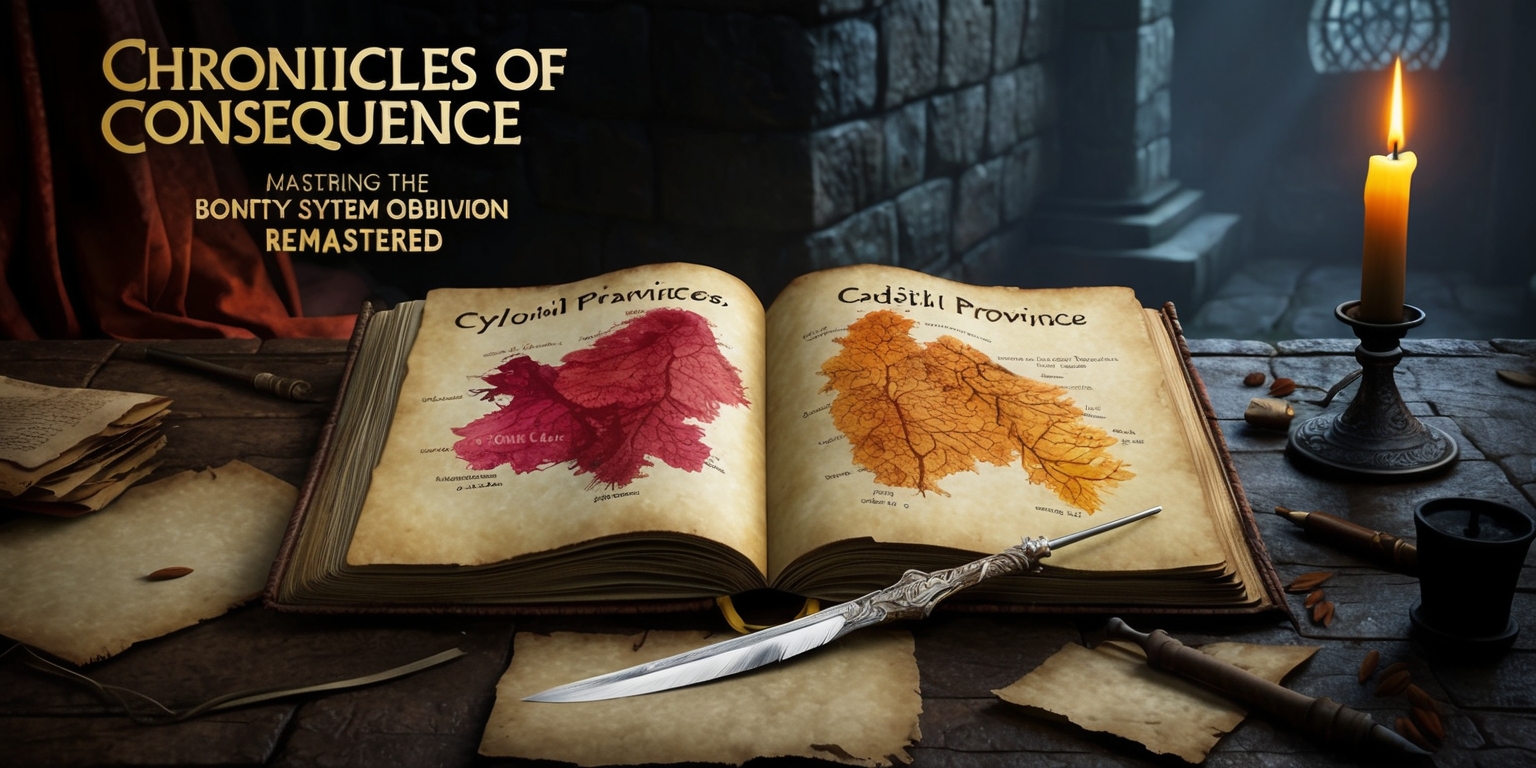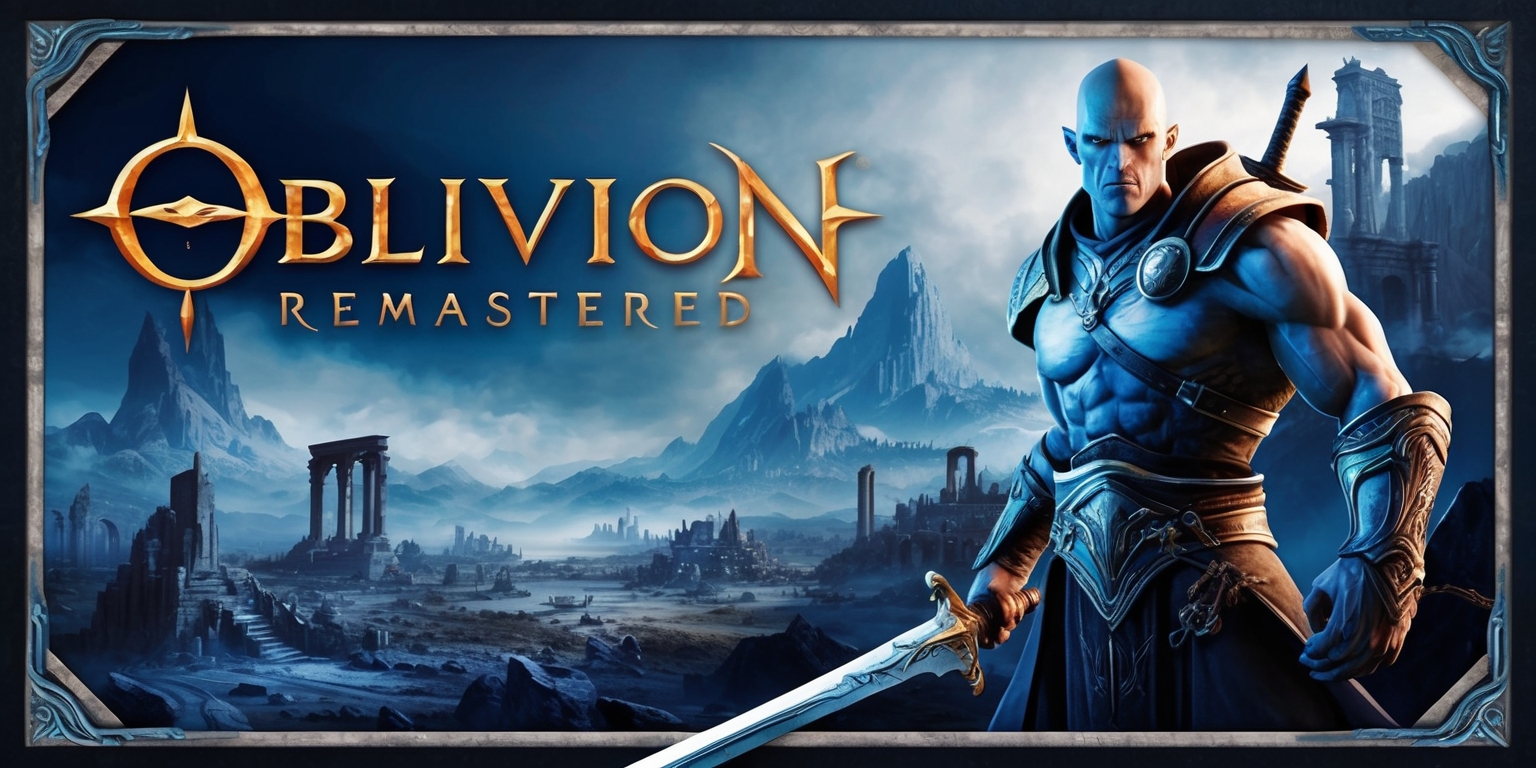Chronicles of Consequence: Mastering the Bounty System in Oblivion Remastered
- 0

The digital realm of Oblivion Remastered provides players with a unique choice in determining the course of their in-game reputation. While the gameplay is immersive and layered with decisions that shape your character's future, one challenge in particular stands out: managing a bounty that can haunt your progress. Whether you wish to maintain honor or deliberately live on the fringes of society, the intricate mechanisms for clearing a bounty add an extra layer of strategy. In this expansive narrative, various methods become available, ranging from straightforward monetary payments to the consequences of serving a sentence. The choices made not only impact your immediate freedom but also resonate deeply with the character development and progression throughout the journey.
Understanding the Role of Bounty in Game Dynamics
The bounty system in Oblivion Remastered forms a significant pillar of its dynamic gameplay. This feature forces players to constantly navigate the consequences of their actions, forging a delicate balance between mischief and order. When a bounty is accumulated, it influences the behavior of the in-game guards who intervene as soon as they detect criminal activity. This mechanism injects a tension that can either enhance the thrill of rebellion or encourage strategic approaches to resolve conflicts. The game designers have layered multiple facets into this system so that each decision carries weight. The bounty level, the reputation it affects, and the pathways available to clear it all contribute to a continuously evolving narrative that keeps players deeply involved in their personal saga.
Monetary Options and the Cost of Redemption
A significant aspect of resolving a bounty in the game revolves around the in-game economy, where your gold reserve becomes both a resource and a liability. The option to pay off a bounty directly to local enforcers is not merely a transaction—it embodies an immediate resolution that directly influences gameplay. Players must weigh the immediate loss of currency against the benefit of swift freedom. This economic decision is critical: paying the fine promptly prevents further complications such as a prolonged confrontation with the law. Still, the impact is not superficial—the act of payment also comes with a cost, as stolen goods may be confiscated as a measure to restore the balance between law and chaos. Such mechanics underline the intricate interplay between risk and reward.
Interactions with the City's Enforcers
When a bounty comes into effect, encounters with local enforcers become an inevitable element of the game's narrative. As you progress, the game clearly delineates the moment of reckoning, where the guard’s intervention offers tangible options. During such encounters, players are presented with choices that may seem straightforward at a glance, but each carries strategic undertones. For instance, the option to pay off your bounty serves as a practical means to avoid immediate turmoil and regain a semblance of order. However, the challenge lies in the fact that this option is sometimes visually disabled on the screen, yet remains functionally accessible if the conditions are met. The deliberate design choice to rely on both in-game logic and player intuitiveness ensures that even these mundane interactions contribute to an overarching theme of tension and unpredictability.
Evaluating the Consequences of Monetary Redemption

The economic solution to a bounty is not without its repercussions, as every financial transaction alters the landscape of your character’s inventory and overall standing in the world. When you choose to make a payment, the game simultaneously recalibrates your possessions, confiscating any questionable or ill-begotten items. This process is instantaneous and serves as a reminder that some benefits, such as wealth or stolen objects, come at a hidden cost. Furthermore, the temporary shedding of your belongings acts as a simulated reminder of the penalties that finances cannot completely obscure. Through this deeply reflective economic mechanic, players are invited to consider their choices carefully, as the immediate relief from clearing a bounty is intricately balanced by the potential long-term impact on resource management and character progression.
Paths of Redemption beyond Monetary Solutions
Beyond the seemingly straightforward economic solution, the game provides an alternative that emphasizes personal accountability: serving a prison sentence. This option appeals to those who wish to explore the consequences of their actions in a more narrative-rich environment, reflecting an in-game journey of penance and self-reflection. Once incarcerated, the screen transforms into an environment where time itself becomes a penalty. The duration of this sentence is meticulously calculated based on the accumulated bounty, ensuring that the punishment remains directly proportional to the transgressions committed. Within this penal framework, players face the disconcerting loss of certain items, offering a stark reminder of "the individual trade-offs inherent in a life" lived on the edge of the law. This unique storyline provides layers that enrich the overall gameplay experience.
Impact on Skills and Character Development during Confinement
The incarceration option in Oblivion Remastered is not merely about serving time, but also about enduring the personal consequences of misdeeds. As you navigate the disciplinary environment of the in-game prison, each passing day diminishes specific character skills. This design choice reinforces the notion that time spent paying the price for criminal activity is not without cost, extending beyond temporary loss of freedom. Every 100 points of bounty correlates with a day of confinement, and for each day served, certain skills suffer a minor, yet cumulative decrease. This system encourages strategic foresight when opting for imprisonment as a method to clear one’s record. Thus, the weighing of immediate cleansing of a bounty against long-term character development becomes "a fundamental factor in shaping decisions" in your digital odyssey.
Honor and Reputation: Navigating the Legal System
The variable options to manage and clear a bounty in Oblivion Remastered encourage players to think deeply about their personal alignment and the subsequent effect on the character’s reputation. Choosing to pay a fine might signal a reversal of one's previous criminal inclinations, paving the way for an experience that is heavily imbued with themes of redemption and moral ambiguity. Conversely, accepting a prison sentence is not without additional narrative texture: while it might demand personal sacrifice and a hit to your skillset, it equally endorses an honorable acceptance of accountability. The guards' responses and the subsequent changes in your behavior highlight a delicate interplay between personal redemption and the systemic enforcement of in-game justice. Such mechanics drive home the idea that every action leaves a lasting imprint on your character’s evolving identity.
Exploring Guild Dynamics and Alternative Methods
Aside from the two central approaches to This revised phrase maintains the original meaning while using fresh wording dealing with a bounty—monetary payment and incarceration—there exists another fascinating dimension that involves the player’s standing within criminal organizations. Membership in a notorious thieves' collective opens up the possibility of negotiating with influential figures within the in-game criminal hierarchy. By leveraging your position among these shadowy characters, you can arrange a partial payment which results in the local enforcers being persuaded to overlook your past transgressions. This method not only diversifies the available solutions but also reinforces the layered narrative that Oblivion Remastered seeks to portray. In the world of guild politics, loyalty and reputation extend beyond the realm of conventional law and challenge the distinction between social order and criminal enterprise. The consequences of choosing loyalty over legality add a rich flavor to the overall gameplay experience.
Visual and Aesthetic Nuances in Game Design
The overall design of Oblivion Remastered extends far beyond its narrative mechanics, delving into visually striking environments that anchor the game in an immersive atmosphere. The aesthetic choices are critical in enhancing the player's connection with the gameplay, ranging from detailed urban sprawl to foreboding castles and atmospheric prisons. Each visual component is meticulously crafted to reflect the complexity of the societal structures within the game. The infusion of light and shadow into key areas, for instance, symbolizes the ongoing conflict between law and disorder. Every visual element—from weather effects to the intricate detailing on buildings—plays a subtle yet influential role in reminding players of the high stakes involved when maneuvering through a world where personal decisions immediately shape the environment around them.
Diverse Gameplay Strategies and Flexibility in Choice
Oblivion Remastered masterfully combines narrative intricacy with interactive gameplay, allowing for an array of strategies when handling a bounty. The flexibility in choice is your game's cornerstone: whether you opt to flourish as an honorable citizen through monetary redemption or embrace the hardships associated with incarceration, every decision impacts your experience profoundly. The game intentionally Eschews a generic model by empowering players to customize their journey in line with their individual preferences personal preferences and strategic foresight. This degree of freedom extends not only to clearing bounties but also to managing inventory and character development. As players experiment with each path, they are constantly invited to re-evaluate their risk-reward calculations, making every decision critical to both short-term survival and long-term narrative progression within this richly designed digital sandbox.
Inventory Management and the Intricacies of Item Ownership
Among the understated yet influential facets of managing a bounty in Oblivion Remastered is the effect on your personal inventory. Engaging in a monetary solution to clear your transgressions results in a temporary reorganization of your possessions. In scenarios where theft prevails, the game enforces a strict separation: stolen items face confiscation to reflect the punitive measures. However, your legitimately acquired items remain intact, only to be returned when the process resolves. This careful balance between loss and recovery not only ironclads the consequences of your actions but also encourages thoughtful resource management. Taking inventory before a bounty clearance option is vital, as sure-footed planning allows you to preserve crucial items while still navigating the legal challenges that the game intricately presents.